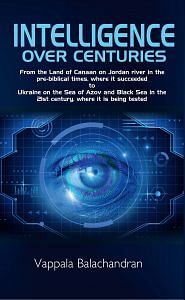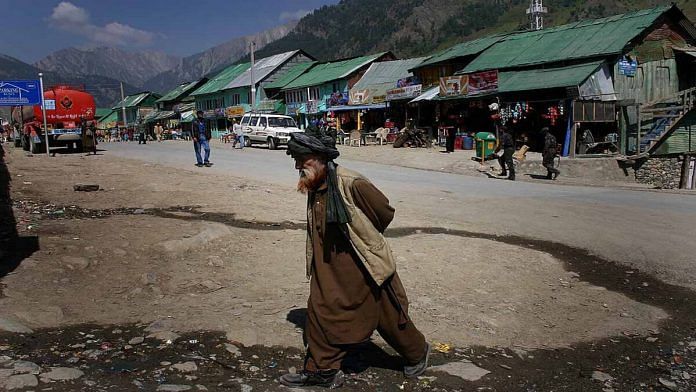On 28 August 2015 the late A.K. Verma, former Indian foreign Intelligence chief, wrote an op-ed in a national daily about the two rounds of secret talks in Amman and Geneva between chiefs of ISI and R&AW. He wrote a third person account of this meeting instead of saying that the Indian side was represented by him. He said that the initiative came from Gen. Zia himself early in 1988 as he felt that precious resources were being wasted on Defence budget due to Indo-Pakistan tensions.
He then approached the then Crown Prince Hassan of Jordan to use his good offices to convince the late Prime Minister Rajiv Gandhi. Prince Hassan, who was removed from this position three weeks before the death of King Hussein of Jordan on 9 February 1999, had married Sarvath Ikramullah, daughter of Mohammad Ikramullah, the first Foreign Secretary of Pakistan. Former Indian Vice-President Mohammad Hidayatullah (1979-84) was Ikramullah’s younger brother.
Verma wrote this piece after the death of Hamid Gul on 15 August 2015: “Former head of Inter-Services Intelligence Gen. Hamid Gul who died recently, has been described in the Indian media as a monster, the originator and perpetrator of terrorism against India. Yet, there is another side of his personality which needs to be disclosed.”
The agreement finalised in these meetings would have resolved many bilateral disputes such as Siachen and stimulated confidence building measures such as the reduction of Pakistani and Indian troops all over including at LOC and Siachen. Gul started the talks by frankly admitting that Pakistan was fomenting terrorism against India as it was afraid of India’s size. He said that it was the responsibility of India to instil confidence in a smaller country like Pakistan. Verma did not mention this in his op-ed piece but he had told me this at that time as I was working as his chief staff officer.
However, various events intervened before the two governments could take follow up steps to crystallise the gains of this meeting. The suspicious death of Gen. Zia, the removal of Gen. Gul from the ISI post and the mysterious death of the then Pakistan High Commissioner Niaz Naik contributed to the suspicion in India that Pakistan military had torpedoed these conciliation efforts. It may be recalled that Gen. Zia who had agreed to this dialogue had died in a terror incident on 17 August 1988. Prime Minister Benazir Bhutto, who succeeded Gen. Zia removed Gen. Gul from the ISI post on 4 October 1989.
Also read: Not Advani’s Rath Yatra or Ayodhya, something else spurred BJP’s rise in late 1980s
The late Verma mentioned that the then Pakistan High Commissioner Niaz Naik, who was the only one privy to these talks, also died in mysterious circumstances. When the Indian side tried to follow up, Pakistan told them that they had no papers on these secret talks. Verma also cited the late Prime Minister Rajiv Gandhi’s last interview to Barbara Crosette of The New York Times, a few hours before his assassination on 21 May 1991, that “we were close to finishing agreement on Kashmir; we had the maps and everything ready to sign.” And then he was killed. Verma concluded: “It is thus clear that Pakistani generals will go to any extent to prevent a new page opening up in Indo-Pakistan relations.” I must however add here that Niaz Naik died years later, no doubt under suspicious circumstances, on 8 August 2009. I do not know whether it is correct to link this with Gul-Verma talks. It is however true that he was involved in back-channel talks even during Prime Minister A.B. Vajpayee’s period. “Dawn” (Aug 9, 2009) said that he had even travelled to New Delhi incognito to avoid detection.
Hein G. Kiessling, a German author of the Ludwig Maximilian University, who has written the most authentic history of ISI by far, has a different version. I had reviewed this book for Indian readers. He says that Gen. Zia’s Hercules C-130 crash was attributed to a mechanical malfunction by the American side of the Joint Investigation Team. However, the Pakistan side maintained that it was a criminal act or sabotage. Americans had as much interest in the case as Pakistan, as their Ambassador to Pakistan, Arnold Raphael, and Brig. General Herbert Wassom, the senior Pentagon figure in American embassy at that time, had also died along with Pakistan’s Chief of General Staff, Gen. Akhtar, and eight Pakistani generals.
Kiessling says that it was the US Ambassador in India, John Gunther Dean, who was convinced that Zia’s death was an Indian Israeli plan assisted by the KGB and the Afghan Secret Service KHAD, with help from Pakistan. He says: “When Dean made his theory public, he was ordered back to the State Department; and when he held strongly to his conviction, he was declared mentally incompetent and prematurely dismissed from the diplomatic service.”
When the Congress-led coalition was in power, Home Minister P. Chidambaram tried out an experiment in 2012 of including Intelligence and key investigating agencies in the Home Secretary level talks. Thus, IB director Nehchal Sandhu, CBI director A.P. Singh, and NIA Director S.C. Sinha were included in the team led by HomeSecretary R.K. Singh (present minister in the BJP government) for the talks held at Islamabad on 24-25 May 2012. This was a one-time experiment and not intelligence liaison. No assessment is available in public domain on the results of this experiment.
 This excerpt from Intelligence Over Centuries by Vappala Balachandran has been published with permission from Indus Source Books.
This excerpt from Intelligence Over Centuries by Vappala Balachandran has been published with permission from Indus Source Books.



